
 |
Home | London Main | Contact |
Updated: February 2009
The following reference information is included:
My rating scale:
 Excellent ;
Excellent ;
 Very Good ;
Very Good ;
 Good ;
Good ;
 Fair ;
Fair ;
 Poor.
Poor.
Click on an image to see the FULL size with a caption.
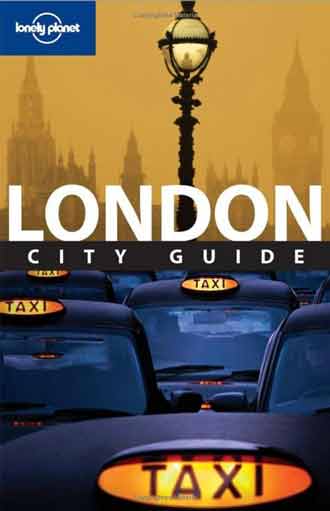
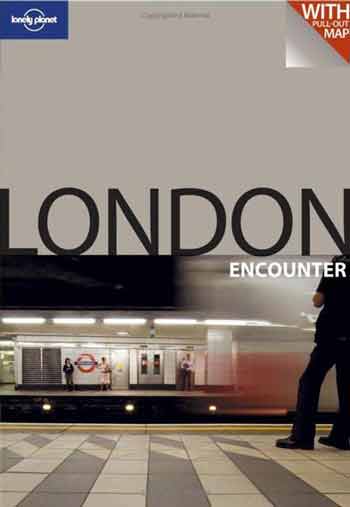
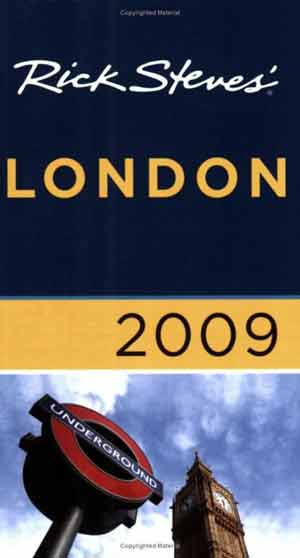

My favourite guidebook series - the right amount of detail, well written, accurate descriptions, great maps. Buy this if you're only doing London and surrounding areas.

A nice small guidebook, but still packed with the information you need. Lonely Planet is my favourite series with the right amount of detail, well written and accurate.

Rick Steves is my second favourite guide series for Europe. I really like his maps and the way he prioritizes what you should see.
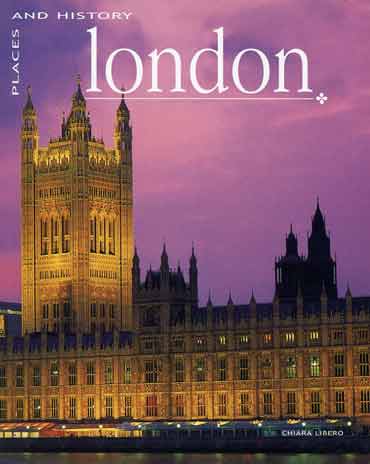
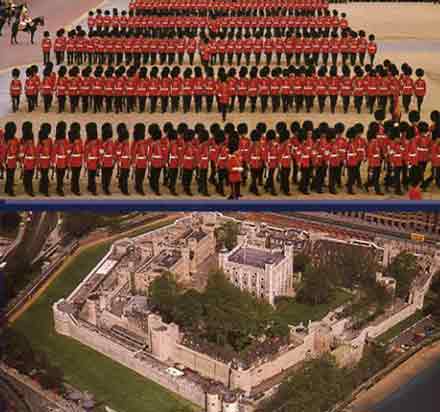

by Chiara Libero. Although this book has some basic descriptions, I really like it for the excellent photographs of all the London attractions. It will help you visualize what you can see on your trip to London. It includes a fairly thorough 36-page section on the history of London.
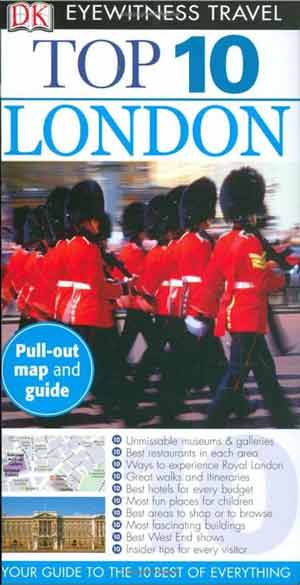
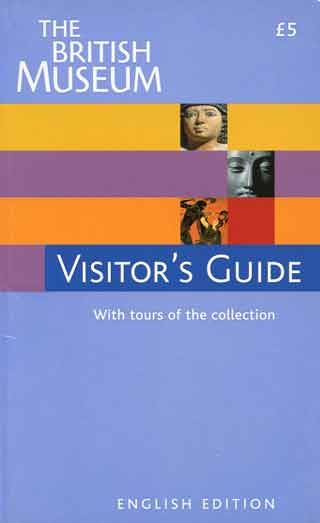

I really like the way this series prioritizes what you could do, especially as you try and plan the specifics of what you want to do and see.

This guidebook provides the basics of what you need to plan your trip to the British Museum, including good maps and a brief overview of the highlights of the collection.
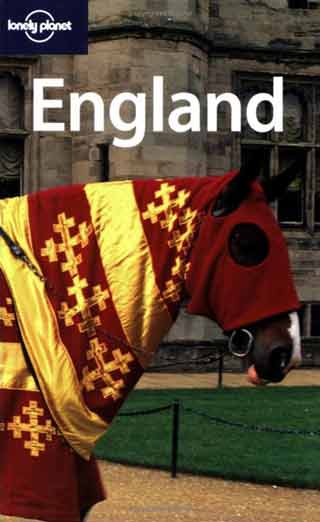

The right amount of detail, well written, accurate descriptions, great maps. Buy this if you're doing London and other parts of England.
London has been featured in many books over the centuries. Here are my favourites:
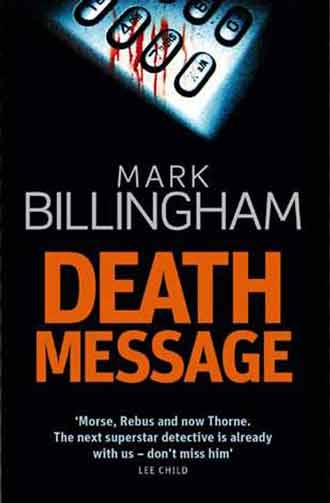
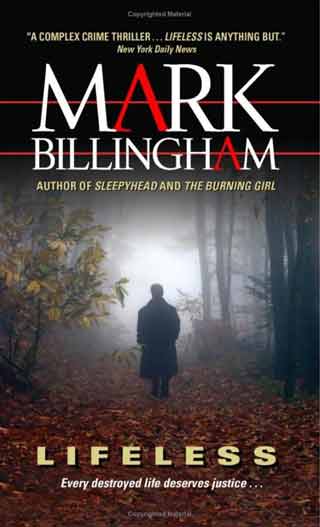

by Mark Billingham - a great mystery series featuring detective Tom Thorne of the London police force. The stories are well written with good characterization and enough plot twists and surprises to keep you intrigued until the end.
I especially liked Lifeless about Thorne going undercover, living on the streets, to catch somebody who is murdering homeless people. Billingham's description of London’s homeless community appears to be fairly authentic, describing a separate portion of society with its own rules and behaviours.
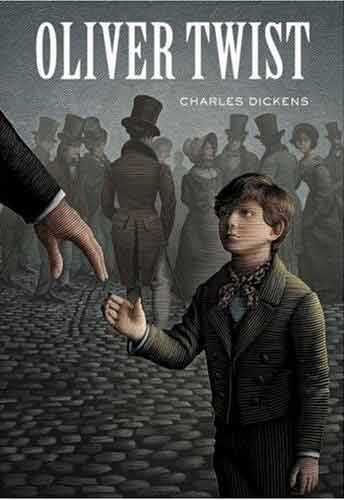

by Charles Dickins - many of his novels were set in London. In Oliver Twist, Dickins calls the public's attention to many of the social problems of the time, including workhouses, child labour and the recruitment of children as criminals.
Abandoned at an early age, Oliver Twist is forced to live in a workhouse where the awful Mr. Bumble cheats the boys of their meager rations. "There are people in the world so hungry, that God cannot appear to them except in the form of bread." Oliver: "Please, sir, I want some more." "But, tears were not the things to find their way to Mr. Bumble's soul; his heart was waterproof."
Oliver makes his escape to the streets of London where he is lured into a world of crime by the mastermind of a gang of child pickpockets, Fagin - "the hideous old man seemed like some loathsome reptile, engendered in the slime and darkness through which he moved". Oliver is rescued by the kindly Mr. Brownlow, leading him to the promise of a better life.
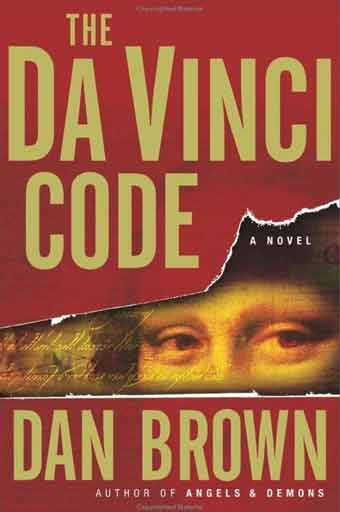

by Dan Brown - an intriguing and controversial mystery set in Paris, Rome, London and Scotland.
Realizing that the clue to the cryptex might not be in France but in England, Langdon, Neveu, and Teabing fly to London. In London they make a mad dash down Fleet Street to Temple Church, and then move on to King's College and Westminster Abbey. London's National Gallery has a second copy of Leonardo's Virgin of the Rocks from the beginning of the novel.
Some of the travel planning sites I used include:
There are many informational websites, with my favourites being:
I thoroughly enjoy reading other people's travelogues and looking through their photos. Here are my favourites:
London has been featured in probably more movies over the years than any other city. Here are my favourites:
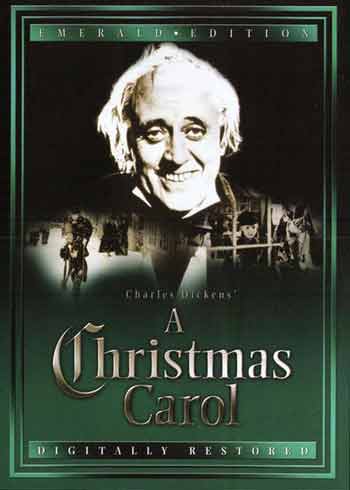

Based on the Charles Dickins book, this 1951 film was directed by Brian Desmond Hurst and starred Alaistar Sim. Sim is the quintessential Ebenezer Scrooge, making all other attempts pale by comparison. Patrick Macnee (Steed in The Avengers) made his screen debut as the young Jacob Marley.
Scrooge starts of as, eh, well you know, Scrooge: "It's all humbug I tell you. All humbug." After thinking about his past and present and realizing how he became the person he is, and looking forward to his future, he decides to change.
Scrooge's Christmas-morning ecstasy is a marvel of giddy technique. "I am as light as a feather, I am as happy as an angel, I am as merry as a school-boy. I am as giddy as a drunken man. ... A merry Christmas, Ebenezer! You old humbug. ... I must, I must stand on my head.".
Tiny Tim: "God bless us, every one!"
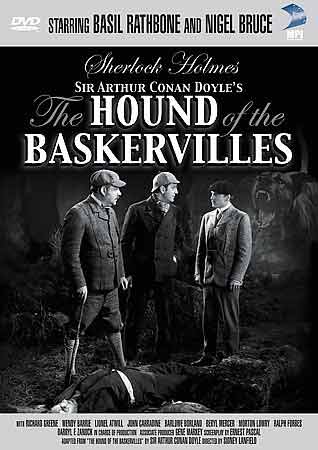

Based on the Sir Arthur Conan Doyle books, the classic Sherlock Holmes movies star Basil Rathbone as Holmes and Nigel Bruce as the Doctor Watson. There were 14 movies made from 1939 to 1946.
Holmes just might be the most famous fictional detective ever created. His film image wearing a deerstalker hat and smoking a pipe is well known throughout the world. He uses deductive reasoning and astute observation to solve difficult cases. Although never actually written in any book, his most famous film quote is probably "Elementary my dear Watson.”
Watson in A Study in Scarlet: " I naturally gravitated to London, that great cesspool into which all the loungers and idlers of the Empire are irresistibly drained." Baker Street is famous as the home of Sherlock Holmes, who lived at 221B Baker Street, an address that does not actually exist.
"Come, Watson, come! The game is afoot."
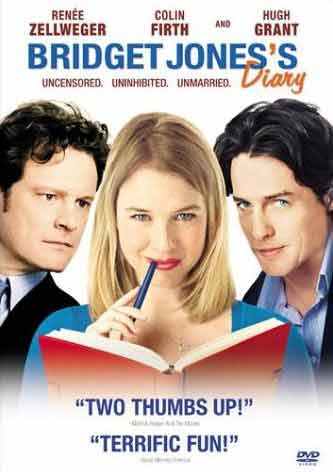

Adapted from Helen Fielding's book, this 2001 film was directed by Sharon Maguire and starred Renee Zellweger, Hugh Grant, and Colin Firth. Zellweger was nominated for the Best Actress Academy Award.
This Year's Resolutions: Stop smoking. Stop drinking. Find inner poise. Go to the gym three times a week. Don't flirt with the boss. Reduce thighs. Learn to love thighs. Forget about thighs. Stop making lists.
Most of the movie was filmed in London and features locations like Regent Street, Liverpool Street station, London Bridge, Old Bond Street, Piccadilly Circus, the Royal Courts Of Justice, Tate Modern, and the Globe Pub.
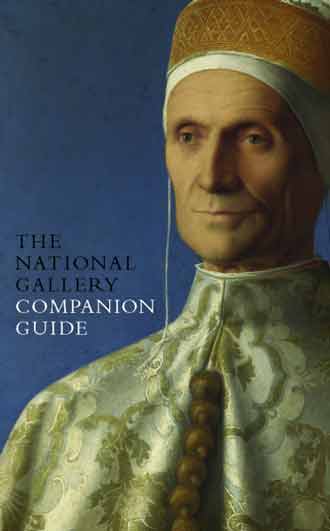

by Erika Langmuir. This guide is an ideal introduction to the National Gallery's collection - one of the richest and most representative collections of Western European paintings in the world.
The books contains over 200 of the most famous paintings in the National Gallery collection including masterpieces by da Vinci, Titian, Rembrandt, Ingres, Turner, Degas, Renoir, Van Gogh, and many others.
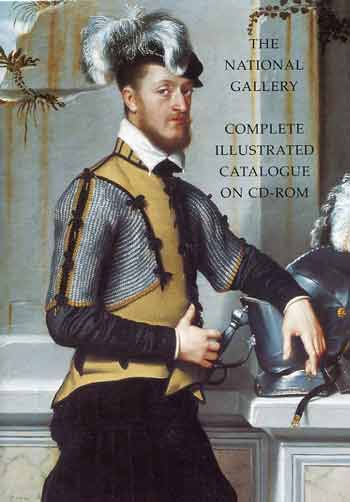

This CD-ROM catalogues all the pictures owned by, or on long-term loan to, the Gallery as at December 2000. It contains high-resolution images to allow you to view each painting, or any detail of your choice, with exceptional clarity. This is an essential tool if you have a passion for Western European painting.
The CD-ROM features over 2300 works along with accompanying text and technical information about the painting, including a brief biography for each of the 750 artists represented.
The quality of the scans are remarkable and one of the best features of this CD-ROM is the ability to select a particular area of the painting and magnify it for closer inspection.
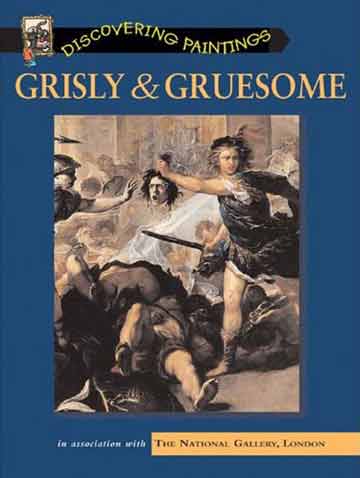
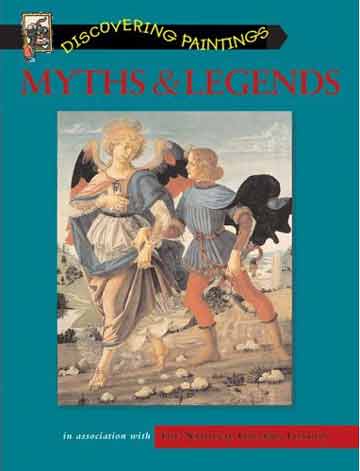
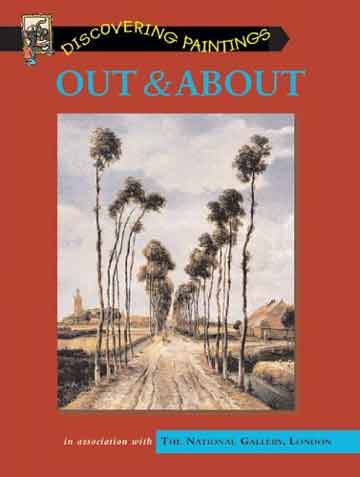
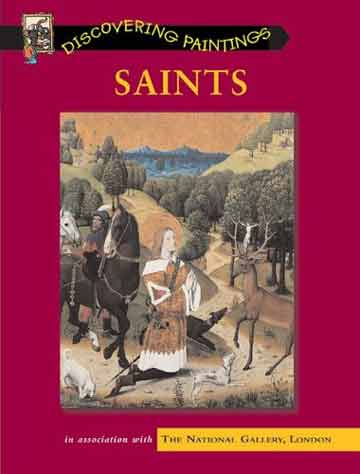

by Ruth Thomson and Anne Civardi. Discovering Paintings is a series of four books for children featuring paintings from the National Gallery: Grisly and Gruesome, Myths and Legends, Out and About, and Saints.
Each book compares and contrasts six paintings on the particular theme. Paintings include Saint George And The Dragon (Saints) by Paolo Uccello, Bacchus and Ariadne (Myths) by Titian, Boating On The Seine / The Skiff (Out and About) by Renoir, and Saint Michael Triumphant Over The Devil With The Donor Antonio Juan (Grisly) by Bartolomé Bermejo.
These books bring the paintings to life with explanations of different facets of each painting, and have fun quizzes to keep it interesting.
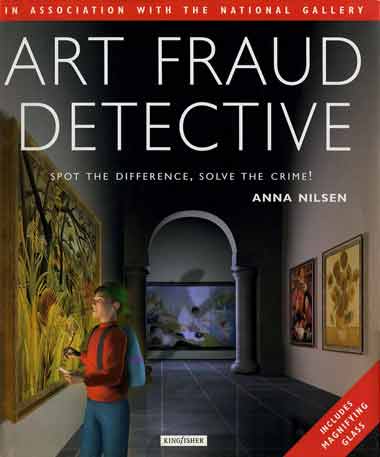

by Anna Nilsen (author) and Andy Parker (Illustrator). Some of the priceless masterpieces have been stolen from the Town (actually the National) Gallery and replaced with forgeries, and it's up to you spot the clues and identify the fakes. This spot-the-difference game also contains facts about paintings, tips on the techniques of the Old Masters and a glossary of art terms.
Artists include Raphael, Rembrandt, Degas, Renoir, Turner, Van Gogh, and Rousseau. I think you learn to appreciate each painting by taking the time to look at it very carefully to spot the small changes.
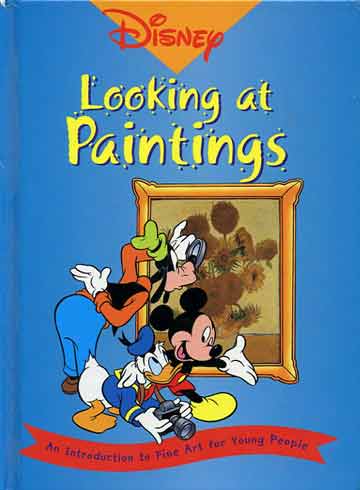

by Ruth Thompson and Erika Langmuir. This book features 72 paintings from the National Gallery and 24 paintings from other collections.
Mickey Mouse and friends use the paintings of famous artists such as Botticelli, Raphael, Rembrandt, Constable, Van Gogh, Monet, Rousseau, and Picasso to explain different aspects of paintings like colour and composition, and perspective and point of view.
In specially created cartoon stories throughout the book, Mickey and his friends celebrate key moments in the history of Western art.
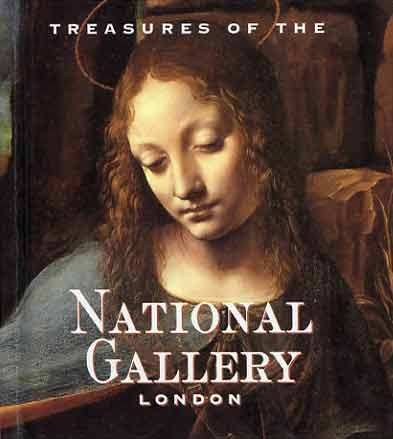

by Erika Langmuir. The Tiny Folio series offers a quick course on a range of art-historical themes and museum collections. This 288 page book covers all the best masterpieces, and is small enough to carry with you.
The books contains almost 300 of the most famous paintings in the National Gallery collection including masterpieces by Sandro Botticelli, Leonardo da Vinci, Michelangelo, Raphael, Titian, Rembrandt, Peter Paul Rubens, Claude Monet, Vincent van Gogh, Edgar Degas, and Paul Cézanne, and many others.